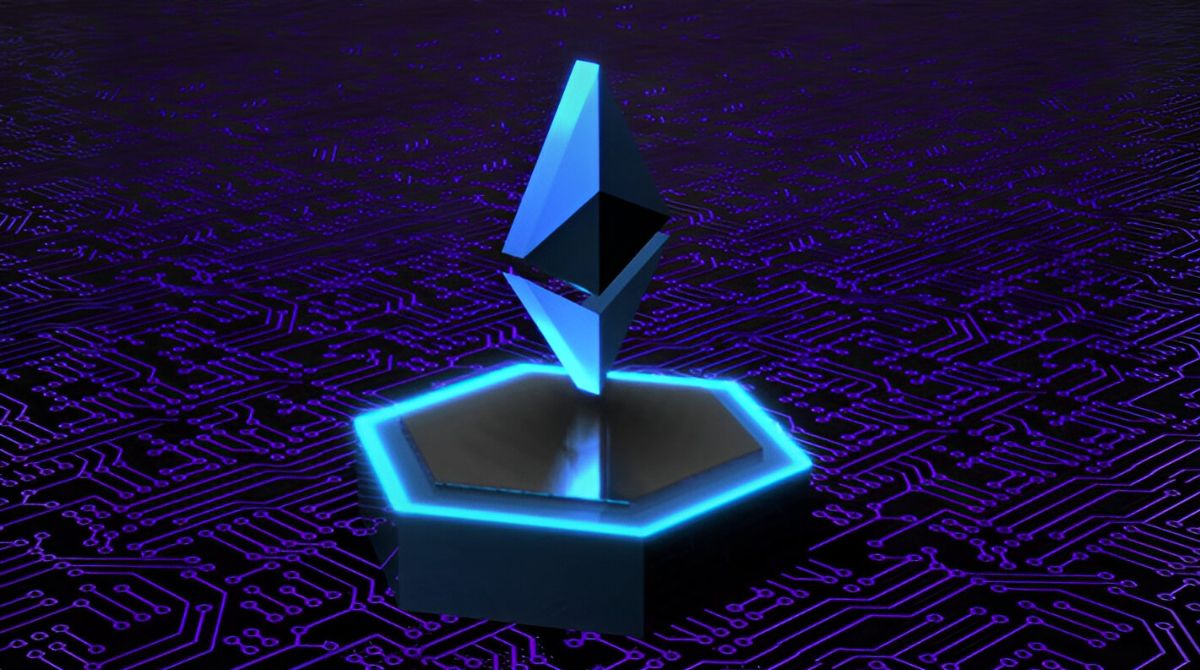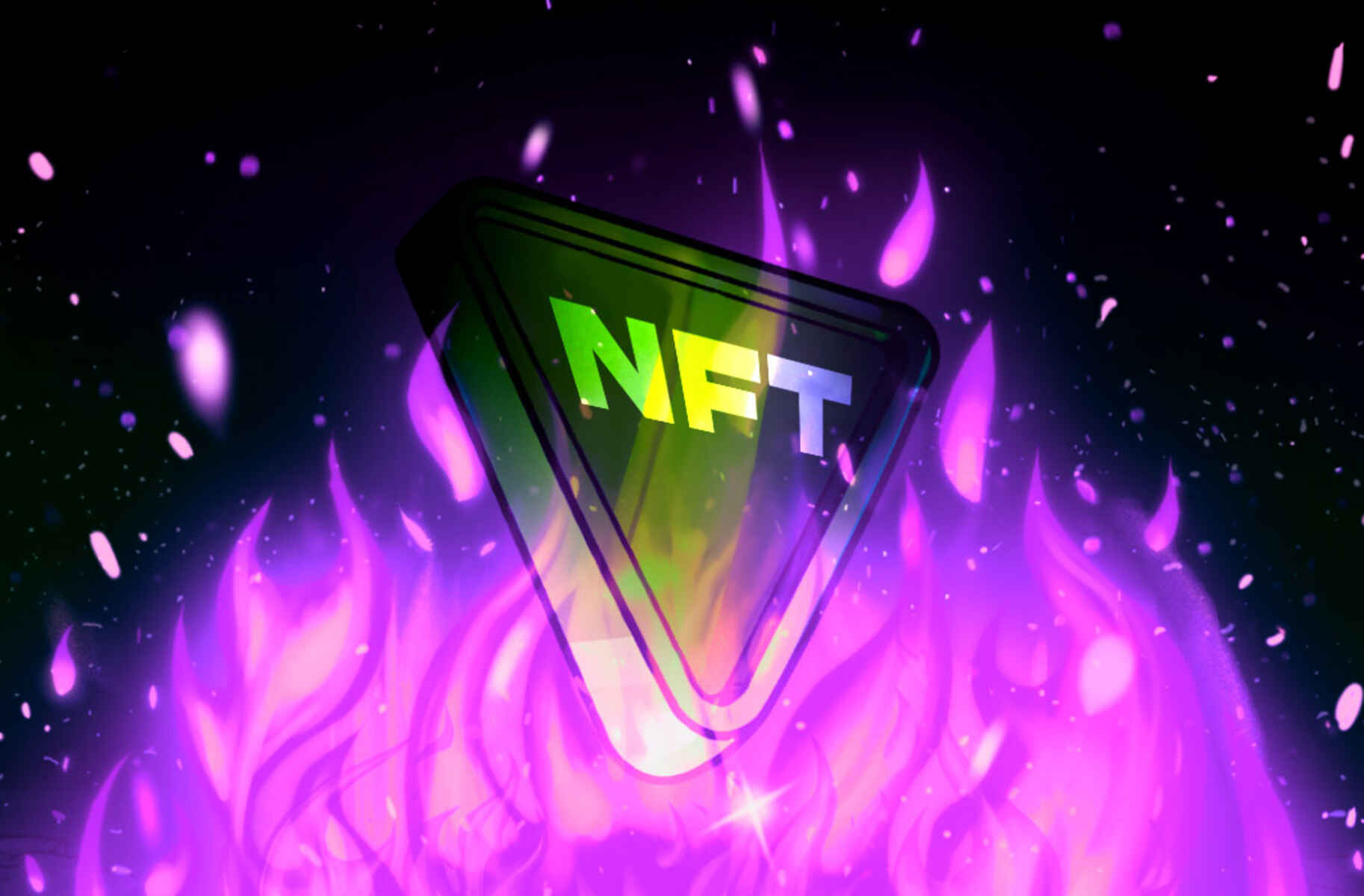Supply Chain Management
Blockchain technology has revolutionized supply chain management by bringing transparency, traceability, and efficiency to the process. With traditional supply chain systems, it can be challenging to track the origin of products, verify their authenticity, and ensure fair trade practices. However, through the use of blockchain, these problems can be solved.
Blockchain allows for the creation of an immutable record of transactions, making it ideal for documenting every step of a product’s journey. Each time a product changes hands, a new block is added to the chain, containing details such as the date, time, location, and parties involved in the transaction. This creates a transparent and auditable history of the product, reducing the risk of counterfeit goods, fraud, and unethical practices.
Furthermore, blockchain enables real-time tracking of shipments, providing stakeholders with accurate and up-to-date information about the location and condition of goods. This can help optimize inventory management, minimize delays, and improve customer satisfaction.
Smart contracts, a key feature of blockchain technology, can also automate various processes in the supply chain. For example, smart contracts can automate payments, ensuring that suppliers are paid promptly once certain conditions are met. This eliminates the need for intermediaries and reduces the potential for discrepancies or disputes.
Additionally, blockchain enhances trust among supply chain participants. Organizations can verify the credentials and certifications of their suppliers, ensuring that they comply with industry standards and regulations. This fosters a more ethical and sustainable supply chain ecosystem.
Overall, the integration of blockchain technology in supply chain management provides numerous benefits, including increased transparency, improved traceability, reduced fraud, and enhanced efficiency. As businesses strive to create more ethical and sustainable supply chains, blockchain offers a promising solution to address the challenges faced in the industry.
Healthcare
Blockchain technology has the potential to revolutionize the healthcare industry by improving data security, interoperability, and patient privacy. The healthcare sector handles vast amounts of sensitive data, including patient records, medical history, and billing information. However, traditional healthcare systems often face challenges such as data breaches, lack of interoperability between different systems, and inefficient exchange of patient information.
By leveraging the decentralized nature of blockchain, healthcare organizations can enhance data security and eliminate single points of failure. Rather than storing patient data in a central database vulnerable to hacking, blockchain enables the distribution of data across a network of nodes. Each transaction is encrypted and linked to previous transactions, ensuring the integrity and immutability of the data.
In addition, blockchain technology can improve interoperability by facilitating the seamless exchange of patient records between different healthcare providers and systems. With the patient’s consent, healthcare professionals can access a comprehensive and up-to-date medical history, reducing the risk of medical errors, duplicate tests, and unnecessary procedures. This enhances the continuity of care and improves patient outcomes.
Moreover, blockchain allows patients to have greater control over their own healthcare data. With the use of encrypted keys, patients can grant access to their data to specific providers or researchers, ensuring privacy while enabling collaboration. This empowers individuals to actively manage their health and participate in research projects, ultimately advancing medical knowledge and treatments.
Another significant application of blockchain in healthcare is in the management of clinical trials. Blockchain technology can streamline the process of recruiting, monitoring, and compensating participants, while ensuring the integrity and transparency of trial data. This has the potential to accelerate the development of new drugs and therapies, benefiting patients worldwide.
While blockchain technology holds great promise for healthcare, its implementation is not without challenges. Ensuring regulatory compliance, addressing interoperability issues, and managing the scalability of blockchain networks are among the key considerations. However, with ongoing research and collaboration between technology providers and healthcare stakeholders, blockchain has the potential to transform the healthcare industry, improving patient care, data security, and overall efficiency.
Voting Systems
Blockchain technology has the potential to revolutionize voting systems, tackling issues such as voter fraud, the need for trust in centralized authorities, and the inefficiencies in traditional voting processes. With its decentralized and transparent nature, blockchain can introduce unprecedented levels of security, transparency, and integrity to the voting process.
One of the main advantages of using blockchain for voting is its ability to eliminate voter fraud. Traditional voting systems are susceptible to various forms of manipulation, including voter impersonation, ballot tampering, and double voting. By leveraging blockchain, each vote can be securely recorded as a transaction on the network. Once recorded, the vote is immutable, making it nearly impossible to tamper with or alter the results without detection.
Blockchain also ensures transparency in the voting process. With traditional voting systems, there is often limited visibility into how votes are counted, making it difficult to verify the accuracy and integrity of the results. However, with blockchain, every transaction can be verified by anyone on the network, ensuring that the voting process is fair and transparent. This fosters trust among voters and increases confidence in electoral outcomes.
In addition, blockchain can enhance the accessibility and convenience of voting. With the use of digital identities and encrypted keys, voters can securely cast their votes from anywhere, eliminating the need for physical polling stations. This can benefit populations such as overseas voters, individuals with limited mobility, and those living in remote areas. Blockchain-based voting systems also have the potential to reduce the time and cost associated with traditional manual vote counting processes.
While the implementation of blockchain in voting systems holds significant promise, there are challenges that need to be addressed. Issues such as ensuring voter privacy, managing voter identification, and preventing Sybil attacks (where an individual creates multiple identities to influence the voting outcome) require careful considerations and robust solutions.
However, despite these challenges, blockchain has the potential to transform the way we conduct elections, ensuring secure, transparent, and efficient voting processes. By leveraging the decentralized and transparent nature of blockchain technology, we can create a more inclusive, trustworthy, and democratic society.
Intellectual Property
Intellectual property rights are essential for protecting and incentivizing innovation and creativity. However, the current systems for registering and enforcing these rights can be complex, time-consuming, and susceptible to fraud. Blockchain technology offers a promising solution to address these challenges and revolutionize the management of intellectual property (IP).
Blockchain provides a decentralized, transparent, and immutable ledger where IP assets can be securely recorded, verified, and transferred. By leveraging blockchain, creators can timestamp their work, creating an indisputable record of its existence. The decentralized nature of blockchain ensures that no single entity has control over the IP records, reducing the risk of tampering or manipulation.
Smart contracts, a key feature of blockchain technology, can automate and streamline the licensing and distribution of intellectual property. With smart contracts, creators can establish predetermined rules and conditions for the usage and monetization of their works. This eliminates the need for intermediaries and reduces the potential for disputes or unauthorized usage.
In addition, blockchain technology can enhance the transparency and traceability of intellectual property rights. With traditional systems, it can be challenging to track the ownership and chain of custody of IP assets. Blockchain provides a transparent and auditable record of every transaction and transfer of IP, enabling efficient enforcement of rights and reducing infringement.
Furthermore, blockchain has the potential to facilitate the creation of decentralized marketplaces for IP assets, allowing creators to monetize their work directly with buyers and eliminating the need for intermediaries. This can lead to fairer compensation for creators, as well as broader access to innovative and creative works.
Despite its numerous advantages, there are challenges to consider when applying blockchain to intellectual property management. These include addressing legal and regulatory frameworks, ensuring the privacy of sensitive information, and managing the scalability of blockchain networks.
However, with ongoing research, collaboration, and innovation, blockchain technology has the potential to revolutionize the management of intellectual property. By providing a secure, transparent, and efficient framework for protecting and monetizing creativity and innovation, blockchain can unlock new opportunities for creators and foster a more vibrant and inclusive creative economy.
Financial Services
Blockchain technology has emerged as a game-changer in the financial services industry, offering numerous benefits such as increased security, transparency, efficiency, and accessibility. From payments to lending, investments to identity verification, blockchain is transforming financial services in various ways.
One of the key advantages of blockchain in financial services is enhanced security. Traditional financial systems rely on centralized databases, making them vulnerable to hacking and data breaches. Blockchain, on the other hand, operates on a decentralized network, where transactions are encrypted and linked to previous transactions, ensuring data integrity and reducing fraud risks.
Transparency is another significant advantage of blockchain in financial services. With traditional systems, it can be challenging to trace the flow of funds and verify transaction details. Blockchain provides a transparent and auditable record of every transaction, visible to all participants in the network. This improves trust and accountability, reduces the risk of fraud, and facilitates regulatory compliance.
Blockchain also offers faster and more efficient payment systems. Traditional cross-border transactions can be time-consuming, costly, and subject to intermediaries. Blockchain enables near-instantaneous peer-to-peer transactions, reducing costs and settlement times. This has the potential to significantly simplify and expedite global remittances and cross-border payments.
Smart contracts, a key feature of blockchain, have the potential to streamline various financial services. Smart contracts are self-executing contracts with predefined rules programmed into the blockchain. They enable automated execution of agreements, such as loan disbursements, insurance claims, or complex financial transactions, reducing the need for intermediaries and eliminating manual errors.
The use of blockchain in identity verification is also gaining traction in the financial services industry. Blockchain-based digital identities can provide a secure and tamper-proof way to verify individuals’ identities and control access to financial services. This can help prevent identity theft, enhance customer due diligence, and streamline customer onboarding processes.
While blockchain technology presents numerous opportunities in financial services, it is important to address regulatory and scalability challenges. Collaborative efforts between financial institutions, technology providers, and regulators are crucial to ensure the successful implementation of blockchain in the industry.
Overall, blockchain has the potential to revolutionize financial services by increasing security, transparency, efficiency, and access. As the technology continues to evolve, we can expect to see more innovative use cases and adoption of blockchain in various financial services applications.
Identity Verification
Identity verification is a critical process, both online and offline, to establish the authenticity and trustworthiness of individuals. Traditional methods of identity verification often involve manual processes, lengthy paperwork, and a heavy reliance on centralized databases. However, blockchain technology has the potential to revolutionize identity verification, offering a more secure, efficient, and decentralized solution.
Blockchain provides a tamper-proof and decentralized platform for storing and verifying digital identities. Instead of relying on a single centralized authority to validate identities, blockchain allows for the creation of self-sovereign identities. Individuals can have full control over their own identity information and selectively provide access to relevant parties, such as financial institutions, government agencies, or service providers.
With blockchain-based identity verification, the need for repetitive and time-consuming identity verification processes can be minimized. Once an individual’s identity is verified and recorded on the blockchain, subsequent verification requests can be streamlined and simplified. Authorized parties can access the immutable and verified identity data from the blockchain, eliminating the need for multiple identity proofs and reducing the risk of identity theft.
Furthermore, blockchain enhances the privacy and security of personal data during identity verification. Traditional methods often involve sharing personal information with various entities, increasing the risk of data breaches and misuse. With blockchain, only the required information relevant to the verification process is shared on a need-to-know basis, minimizing the exposure and vulnerability of personal data.
Additionally, blockchain enables seamless and secure cross-border identity verification. The decentralized nature of blockchain removes the need for centralized authorities to manage and verify international identities. This can be particularly beneficial for individuals who frequently travel or reside in different countries, as their verified identity can be seamlessly accessed and validated by authorized entities worldwide.
While blockchain-based identity verification offers numerous advantages, challenges still need to be addressed. Interoperability between different blockchain networks, regulatory compliance, and ensuring the accuracy and reliability of identity data are among the key considerations.
Overall, blockchain technology has the potential to transform the way identity verification is conducted, offering a more secure, efficient, and user-centric approach. By empowering individuals with control over their own identities and providing secure access to verified data, blockchain can enhance trust, privacy, and security in the digital age.
Real Estate
The real estate industry is known for its complex and paper-intensive processes, resulting in inefficiencies, delays, and higher costs. However, blockchain technology has emerged as a transformative solution for the real estate sector, streamlining and revolutionizing various processes from property transactions to title management.
One of the key benefits of blockchain in real estate is the ability to facilitate secure and transparent property transactions. Traditionally, property transactions involve multiple intermediaries, such as brokers, lawyers, and notaries, leading to a lengthy and cumbersome process. With blockchain, property ownership can be reliably recorded on a decentralized and immutable ledger, reducing the need for intermediaries and minimizing the risk of fraud or disputes.
Blockchain also enhances the transparency and traceability of property ownership records. Through the use of blockchain, each property transaction is recorded as a block on the chain, creating an auditable history of ownership transfers. This can help mitigate issues such as fraudulent title deeds and provide potential buyers with transparent information about the property’s ownership history.
Smart contracts, integral to blockchain technology, can automate various aspects of real estate transactions. For example, smart contracts can automatically release funds to the seller once predefined conditions, such as completion of inspections or fulfillment of financial agreements, are met. This streamlines the transaction process, reduces the need for manual intervention, and ensures that all parties adhere to agreed-upon terms.
Furthermore, blockchain has the potential to simplify property title management. Traditionally, managing and verifying property titles involve extensive paperwork and reliance on centralized registries. By leveraging blockchain, property titles can be securely recorded and verified on a decentralized and tamper-proof ledger. This reduces the risk of title fraud, accelerates the title transfer process, and improves the efficiency of property transactions.
Additionally, blockchain-based platforms can enable fractional ownership and real estate crowdfunding. Through tokenization, real estate assets can be divided into digital shares that are recorded on a blockchain. This provides opportunities for smaller investors to participate in real estate investments and increases liquidity in the market.
While there are challenges to overcome, such as legal and regulatory considerations and the need for industry-wide adoption, blockchain technology has the potential to significantly transform the real estate industry. By introducing transparency, security, and efficiency, blockchain can enhance trust among stakeholders and revolutionize the way real estate is bought, sold, and managed.
Energy Sector
The energy sector is undergoing a rapid transformation, driven by the need for sustainable and decentralized energy systems. Blockchain technology has emerged as a powerful tool in the energy sector, offering benefits such as increased transparency, peer-to-peer energy trading, and efficient management of renewable energy resources.
One of the key applications of blockchain in the energy sector is the establishment of transparent and traceable energy transactions. With the integration of blockchain, energy producers and consumers can track and verify the origin of energy, ensuring that it comes from renewable and sustainable sources. This transparency builds trust and provides incentives for the development and adoption of clean energy technologies.
Furthermore, blockchain enables peer-to-peer energy trading, bypassing traditional intermediaries and allowing consumers to directly buy and sell energy from each other. This decentralized approach facilitates the integration of distributed energy resources, such as solar panels and wind turbines, into the grid. Consumers can monetize excess energy they generate and contribute to a more efficient and resilient energy distribution system.
Smart contracts, an integral part of blockchain technology, can automate energy transactions between parties. For example, contracts can automatically execute payments and adjust energy prices based on real-time information, such as supply and demand. This streamlines the billing process and removes the need for intermediaries, reducing transaction costs and enhancing efficiency.
In addition, blockchain technology can facilitate the implementation of energy trading communities or microgrids. These decentralized networks operate independently or in connection with the main grid, enabling local energy generation, storage, and consumption. Blockchain enables the secure and transparent trading of energy among community members, boosting the development of local renewable energy projects and creating a more resilient and sustainable energy infrastructure.
Advancements in blockchain technology also hold promise for energy grid management. Blockchain can enable real-time monitoring and control of energy assets, optimizing energy distribution, and reducing wastage. This can help balance the supply and demand of energy, improve grid stability, and reduce the reliance on centralized control systems.
While blockchain offers numerous opportunities in the energy sector, challenges such as scalability, regulatory considerations, and interoperability with existing energy infrastructure need to be addressed. Collaboration between technology providers, industry stakeholders, and policymakers is crucial to fully harness the potential of blockchain in the energy sector.
In summary, blockchain technology has the potential to revolutionize the energy sector, enabling transparent and efficient energy transactions, peer-to-peer energy trading, and the integration of renewable energy resources. By leveraging blockchain, the energy sector can accelerate the transition to a sustainable and decentralized energy future.
Gaming
Gaming is a multi-billion-dollar industry that continues to evolve with advancements in technology. Blockchain technology has the potential to transform the gaming industry by introducing new possibilities for ownership, security, interoperability, and monetization.
One of the key benefits of adopting blockchain technology in gaming is the concept of true ownership. Traditionally, gamers do not have true ownership over in-game assets and virtual items. However, blockchain-based gaming platforms enable the creation of non-fungible tokens (NFTs) that represent unique and indivisible digital assets. NFTs give gamers true ownership and the ability to buy, sell, and trade virtual items securely and transparently.
Blockchain can also enhance security in gaming by eliminating the risk of fraud, hacking, and cheating. The decentralized nature of blockchain makes it difficult for malicious actors to alter game data or manipulate assets. Additionally, smart contracts can ensure fair play by enforcing transparent and tamper-proof rules within the game ecosystem.
Interoperability is another significant advantage of blockchain in gaming. Traditionally, in-game assets are siloed within specific games and cannot be transferred between different platforms. However, blockchain-based platforms facilitate cross-game asset interoperability, allowing gamers to use and trade their virtual items across multiple games. This opens up new opportunities for gamers to explore different gaming experiences while retaining the value of their assets.
Furthermore, blockchain technology introduces new monetization models for gamers. With blockchain-based games, players can earn cryptocurrency or receive rewards in the form of tokens for their achievements in the game. These tokens can be exchanged for real-world value or used within the game’s ecosystem to unlock additional features or content. This creates a more engaging and rewarding gaming experience for players.
Collaborative gaming is also enhanced by blockchain technology. Blockchain allows for the creation of decentralized gaming platforms where players can join together to collectively make decisions and shape the virtual world. These player-driven ecosystems promote community participation, creativity, and a sense of ownership among the gaming community.
While blockchain technology presents numerous opportunities for the gaming industry, challenges such as scalability, user adoption, and regulatory considerations need to be addressed. Collaboration between game developers, blockchain experts, and gaming communities is essential to foster innovation and drive widespread adoption.
Overall, blockchain technology has the potential to revolutionize the gaming industry by introducing true ownership, enhancing security, enabling interoperability, and offering new monetization models. As blockchain continues to evolve, we can expect to see more innovative games and platforms that provide gamers with unique and immersive experiences.
Music Industry
The music industry has faced numerous challenges in recent years, including issues of copyright, royalty payments, and transparent attribution of creative works. Blockchain technology offers a potential solution to these challenges, revolutionizing the music industry through increased transparency, fairer compensation for artists, and streamlined music distribution.
One of the significant advantages of blockchain in the music industry is its ability to establish transparent and immutable records of music rights and ownership. With blockchain, music creators can securely register their works, establish ownership, and record licensing agreements. This creates an auditable and tamper-proof record of the creative process and ensures that artists receive proper credit and royalties for their work.
Smart contracts, a key feature of blockchain technology, can automate royalty payments and ensure fair distribution of revenues. Smart contracts can be used to define the terms of licensing agreements, automatically track and collect streaming or download royalties, and distribute payments to artists and rights holders. This streamlines the royalty collection process, reduces administrative costs, and provides artists with more control over their income streams.
Blockchain also enables direct peer-to-peer transactions and eliminates the need for intermediaries such as record labels or distribution platforms. With blockchain-based music platforms, artists can directly sell their music to fans, eliminating the complexities and fees associated with traditional distribution models. This enables artists to retain more control over their music and have a direct relationship with their audience.
Additionally, blockchain technology can address the issue of music piracy. By creating authentic and traceable records of music on the blockchain, it becomes easier to identify and track unauthorized copies or distribution. This helps protect the rights of artists and ensures that they receive proper compensation for their work.
Blockchain also provides opportunities for fans to become more actively involved in supporting their favorite artists. Through tokenization and the use of cryptocurrencies, fans can invest in artists, purchase limited-edition merchandise, or access exclusive content. This direct engagement between artists and fans fosters a closer relationship and creates new revenue streams for artists.
While there are challenges to overcome, such as ensuring widespread adoption of blockchain-based platforms, addressing legal and regulatory considerations, and establishing industry-wide standards and collaboration, blockchain technology holds significant promise for the music industry. By increasing transparency, enabling fair compensation, and empowering artists and fans, blockchain can reshape the music industry for the better.
Legal Contracts
Legal contracts are the backbone of business transactions, but they often involve manual processes, time-consuming negotiations, and a heavy reliance on intermediaries. Blockchain technology has the potential to revolutionize the way legal contracts are created, executed, and enforced, offering advantages such as increased transparency, automation, and security.
One of the key benefits of using blockchain in legal contracts is enhanced transparency. With traditional contracts, it can be challenging to track the lifecycle of a contract and verify its authenticity. Blockchain provides a decentralized and immutable ledger, where each transaction or amendment to a contract is recorded and time-stamped. This transparent record of changes and signatures helps prevent fraud, disputes, and ensures that all parties have access to the most up-to-date version of the contract.
By leveraging blockchain technology, legal contracts can be automated through the use of smart contracts. Smart contracts are self-executing agreements with predefined rules encoded on the blockchain. These contracts automatically enforce and execute the terms and conditions when specific conditions are met. This automation reduces the need for intermediaries, streamlines the contract execution process, and eliminates the potential for human error or bias.
In addition, blockchain enhances security and reduces the risk of contract tampering or data breaches. Traditional contracts are often stored in centralized systems, making them vulnerable to hacking or unauthorized access. With blockchain, contracts are stored across a distributed network of computers, encrypted with advanced cryptography, and linked to previous transactions. This makes it extremely difficult for any unauthorized changes to the contract to go unnoticed.
Blockchain technology also provides a robust and efficient system for recording and managing digital identities. Digital identities on the blockchain can be securely linked to legal entities such as individuals, organizations, or devices. This ensures the integrity of signatures, enhances identity verification, and simplifies the process of executing contracts with remote or international parties.
While blockchain offers significant advantages for legal contracts, challenges still need to be addressed. Legal and regulatory frameworks must adapt to the implementation of blockchain technology in contracts. Additionally, the scalability and interoperability of blockchain networks need to be further developed to support large-scale contract management.
Overall, blockchain technology has the potential to transform the way legal contracts are created, executed, and enforced. By increasing transparency, automating processes, and enhancing security, blockchain can streamline contract management, reduce costs, and bring greater trust and efficiency to the legal industry.
Charity and Philanthropy
Charity and philanthropy play a vital role in addressing societal challenges and creating positive change. However, the traditional model of charitable giving often faces issues such as lack of transparency, inefficient distribution of funds, and limited donor engagement. Blockchain technology offers a transformative solution for the charity and philanthropy sector, providing transparency, trust, and increased impact.
One of the key advantages of blockchain in charity and philanthropy is increased transparency. With traditional donation systems, it can be challenging for donors to track how their funds are used or verify the impact of their contributions. Blockchain provides a decentralized and immutable ledger, where every donation and its allocation can be recorded and made accessible to all stakeholders. This transparency builds trust, enables donors to track the flow of funds, and ensures accountability in the use of charitable resources.
Blockchain also introduces the concept of smart contracts in charitable giving. Smart contracts can automate the distribution of funds based on predefined conditions and rules. This eliminates the need for intermediaries and ensures that donations are used in accordance with the donor’s intentions. For example, donations can be automatically allocated to specific projects or initiatives once certain milestones are met, increasing the effectiveness and efficiency of charitable giving.
Moreover, blockchain-based platforms enable direct peer-to-peer donations, bypassing the traditional infrastructure and reducing administrative costs. Donors can directly contribute to causes they care about, eliminating the intermediaries and ensuring that a larger portion of their donation reaches the intended recipients. This also provides an opportunity for individuals to support grassroots initiatives and smaller organizations that may have difficulty accessing traditional funding sources.
With blockchain, donor engagement and impact tracking can be taken to new levels. Donors can have real-time visibility into how their contributions are making a difference, as blockchain enables the tracking of the impact of donations. This transparency encourages greater donor participation and fosters a sense of trust and accountability within the philanthropic community.
Blockchain technology can also enable more secure and efficient cross-border donations. Blockchain-based platforms facilitate peer-to-peer transactions and eliminate the need for intermediaries or cumbersome remittance processes. This has the potential to simplify international charitable giving, reduce transaction costs, and ensure that funds reach recipients in a timely and transparent manner.
While there are challenges to address, including regulatory compliance, privacy considerations, and the need for industry-wide collaboration, blockchain technology offers a promising solution for the charity and philanthropy sector. By enhancing transparency, improving efficiency, and empowering donors, blockchain has the potential to transform the way charitable organizations operate and create a more impactful and inclusive philanthropic ecosystem.
Government Services
Government services are often associated with bureaucracy, inefficiency, and lack of transparency. However, blockchain technology has emerged as a potential solution to improve government services, offering benefits such as increased transparency, enhanced security, streamlined processes, and citizen empowerment.
One of the key advantages of blockchain in government services is increased transparency. Public sector organizations can leverage blockchain to create transparent and immutable records of government transactions, contracts, and public funds. This transparency not only helps prevent corruption and fraud but also enables citizens to have a clear view of how government resources are being utilized. Blockchain can ensure that all transactions are traceable and auditable, building trust between the government and its citizens.
Blockchain technology can also enhance security in government services. The decentralized nature of blockchain makes it difficult for unauthorized parties to tamper with or manipulate data. Government agencies can leverage blockchain to secure sensitive information, such as citizen identities, land records, or healthcare records. This helps protect against data breaches and ensures the privacy and integrity of government data.
Streamlining government processes is another area where blockchain technology excels. Blockchain-based systems can automate and streamline administrative processes, eliminating the need for manual paperwork and reducing bureaucratic inefficiencies. Smart contracts can be utilized to automate the execution of agreements, releasing payments or permits upon the fulfillment of predefined conditions. This not only saves time and resources but also reduces the potential for errors or delays in government services.
Blockchain technology also empowers citizens by giving them control over their data and enabling self-sovereign identities. Citizens can securely store and manage their identity information on the blockchain, granting selective access to government agencies as needed. This can eliminate the need for repetitive identity verification processes and expedite interactions with government services.
Blockchain has the potential to significantly improve voting systems and government elections. By utilizing blockchain technology for voting, governments can offer a secure, transparent, and tamper-proof system. Votes recorded on the blockchain cannot be altered or manipulated, ensuring the integrity of electoral processes. This enhances trust in the democratic system and allows for more efficient and accessible voting systems, including remote voting or voting for citizens abroad.
While the adoption of blockchain in government services presents challenges such as regulatory frameworks, interoperability, and educating government officials about the potential of the technology, the benefits are substantial. With proper planning, collaboration, and implementation, blockchain has the potential to streamline government services, increase transparency, improve security, and empower citizens.
Insurance
The insurance industry is known for its complex processes, paperwork, and challenges in claim settlement. However, blockchain technology offers potential solutions to these issues, revolutionizing the insurance industry through increased transparency, efficiency, and trust.
One of the key advantages of blockchain in insurance is enhanced transparency. Blockchain provides a decentralized and immutable ledger, where each transaction and policy can be recorded and verified. This enables all stakeholders, including customers, insurers, and regulators, to have real-time access to transparent and auditable data. This transparency increases trust in the insurance process, reduces fraudulent claims, and improves overall efficiency.
Blockchain also streamlines the claims settlement process by automating and enhancing the efficiency of claims verification. With the use of smart contracts, claims can be automatically evaluated and validated based on predefined rules and data inputs. This eliminates the need for lengthy paperwork and reduces the time it takes to settle claims. Additionally, blockchain can facilitate the sharing of information between insurers and other parties involved in the claims process, such as healthcare providers or repair shops, leading to faster and more accurate claims handling.
Another significant advantage of blockchain in insurance is the potential for peer-to-peer insurance models. Blockchain can enable individuals or small groups to form insurance communities where risks are shared. With the use of smart contracts and blockchain-based platforms, individuals can collectively pool their resources and distribute risk among community members. This allows for more personalized and cost-effective insurance coverage, bypassing the need for traditional insurance intermediaries.
Additionally, blockchain can improve the underwriting process by providing insurers with access to more accurate and up-to-date data. Blockchain can securely record and share information such as policyholder history, claims records, and medical data. This enables insurers to make more informed underwriting decisions, leading to fairer premiums and reducing instances of fraud.
Furthermore, blockchain technology enhances data security in the insurance industry. Traditional insurance systems often store massive amounts of personal and sensitive information, making them vulnerable to data breaches. With blockchain, customer data can be encrypted, securely stored, and accessed only by authorized parties. This helps protect against unauthorized access, fraud, and enhances customer privacy.
Although there are challenges to address, including regulatory considerations, interoperability, and industry-wide adoption, blockchain has great potential to transform the insurance industry. By increasing transparency, automating processes, and enhancing data security, blockchain can improve the efficiency and trustworthiness of insurance operations.
Internet of Things (IoT)
The Internet of Things (IoT) has revolutionized the way devices and systems interact, creating a vast network of interconnected devices. However, the current IoT ecosystem faces challenges such as security vulnerabilities, data privacy concerns, and lack of interoperability. Blockchain technology offers a potential solution to address these issues and unlock the full potential of the IoT.
One of the key advantages of blockchain in the IoT is increased security. Traditional IoT systems are vulnerable to cyber attacks and data breaches due to their centralized nature. Blockchain provides a decentralized and tamper-proof ledger, ensuring the integrity and immutability of data. This enhances the security of IoT networks, preventing unauthorized access and manipulation of data. Blockchain-based authentication mechanisms can also verify the identity of devices within the network, ensuring secure interactions between IoT devices.
Blockchain technology can also enhance data integrity and privacy in the IoT. With the help of distributed ledger technology, data generated by IoT devices can be securely stored and shared among authorized parties. Blockchain can enable data owners to retain control over their data, granting permission for access and ensuring that sensitive information remains private. This promotes transparency and trust among stakeholders, while also addressing privacy concerns in the IoT ecosystem.
Furthermore, blockchain enables greater interoperability and seamless integration of IoT devices. In traditional IoT setups, devices often use proprietary protocols and lack standardization, hindering communication and data sharing. With blockchain, devices can communicate and interact through a common protocol, facilitating interoperability and data exchange. This paves the way for more efficient and collaborative IoT ecosystems, where devices from different manufacturers can seamlessly work together.
Smart contracts, an integral feature of blockchain technology, have significant potential in the IoT. Smart contracts can automate interactions and transactions between IoT devices, eliminating the need for intermediaries and ensuring the execution of predefined rules and conditions. For example, smart contracts can automatically trigger actions or payments based on specific events detected by IoT devices, reducing manual intervention and enhancing operational efficiency.
Moreover, blockchain can enable new business models in the IoT, such as the concept of “tokenized” IoT networks. IoT devices can be tokenized on the blockchain, enabling their owners to monetize their devices’ resources or services. This opens up opportunities for peer-to-peer resource sharing, microtransactions, and decentralized marketplaces within the IoT ecosystem.
While the implementation of blockchain in the IoT ecosystem presents challenges such as scalability, energy efficiency, and standardization, ongoing research and collaboration are driving innovation and addressing these concerns. Blockchain technology holds great potential to secure IoT networks, increase data privacy, promote interoperability, and unlock new possibilities in the evolving world of connected devices.

























